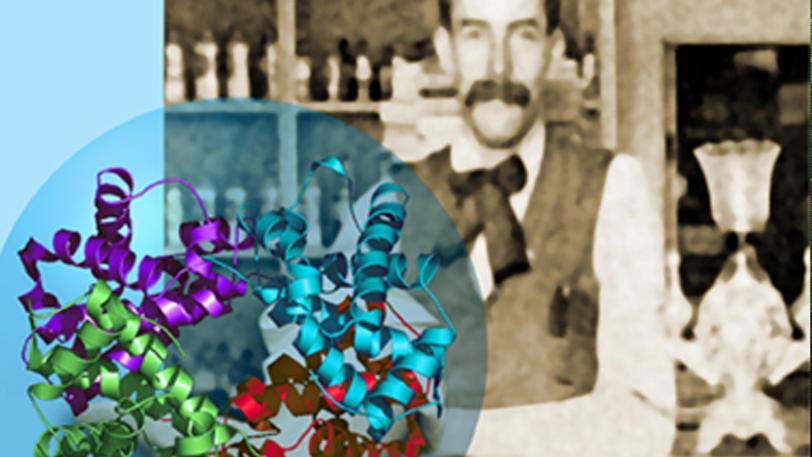According to Smith, protein crystallography allows scientists to design drugs in a much more efficient way than the standard methods traditionally used by large drug companies, which can cost close to a billion dollars and take 10 to 15 years. "A lot of the work can be compressed down," Smith said. Protein crystallography enables researchers to learn the structure of molecules involved in disease and health. Seeing the loops, folds and placement of atoms in anything from a virus to a healthy cell membrane gives important information about how these things work - and how to encourage, sidestep or stop their functions. Drug design can be much faster when the relationship between structure and function tells you what area of a molecule to target.
Smith will use a timeline to illustrate the traditional methods of drug development and the new ways it can be done now. "It is very exciting work. There have been some failures, but many successes too." A new drug to combat the flu was developed in a year or so. Smith will tell us how. He will also highlight drugs developed to combat HIV, Tuberculosis, hypertension and Anthrax.
Past
Event
Smarter Drugs: How Protein Crystallography Revolutionizes Drug Design
Presented by Clyde Smith
About Clyde Smith
After two decades of research in New Zealand, Smith came to SSRL in late 2003 to do structural biology with SSRL's high-intensity x-rays and is developing experiments for the x-ray free electron laser being built at SLAC.
Born and educated in New Zealand, his research studies have included how bacteria become resistant to drugs, bacterial cell wall biosynthesis, antibiotic resistance and viral DNA packaging. He won the Applied Biosystems/NZSBMB Award in 2003.
Past
Event
Smarter Drugs: How Protein Crystallography Revolutionizes Drug Design
Presented by Clyde Smith
Public Lectures

Smarter Drugs: How Protein Crystallography Revolutionizes Drug Design
April 26, 2005
Public lecture presented by Clyde Smith
SLAC National Accelerator Laboratory
Tuesday, April 26, 2005
12:30–1:30 p.m. PDT
12:30–1:30 p.m. PDT